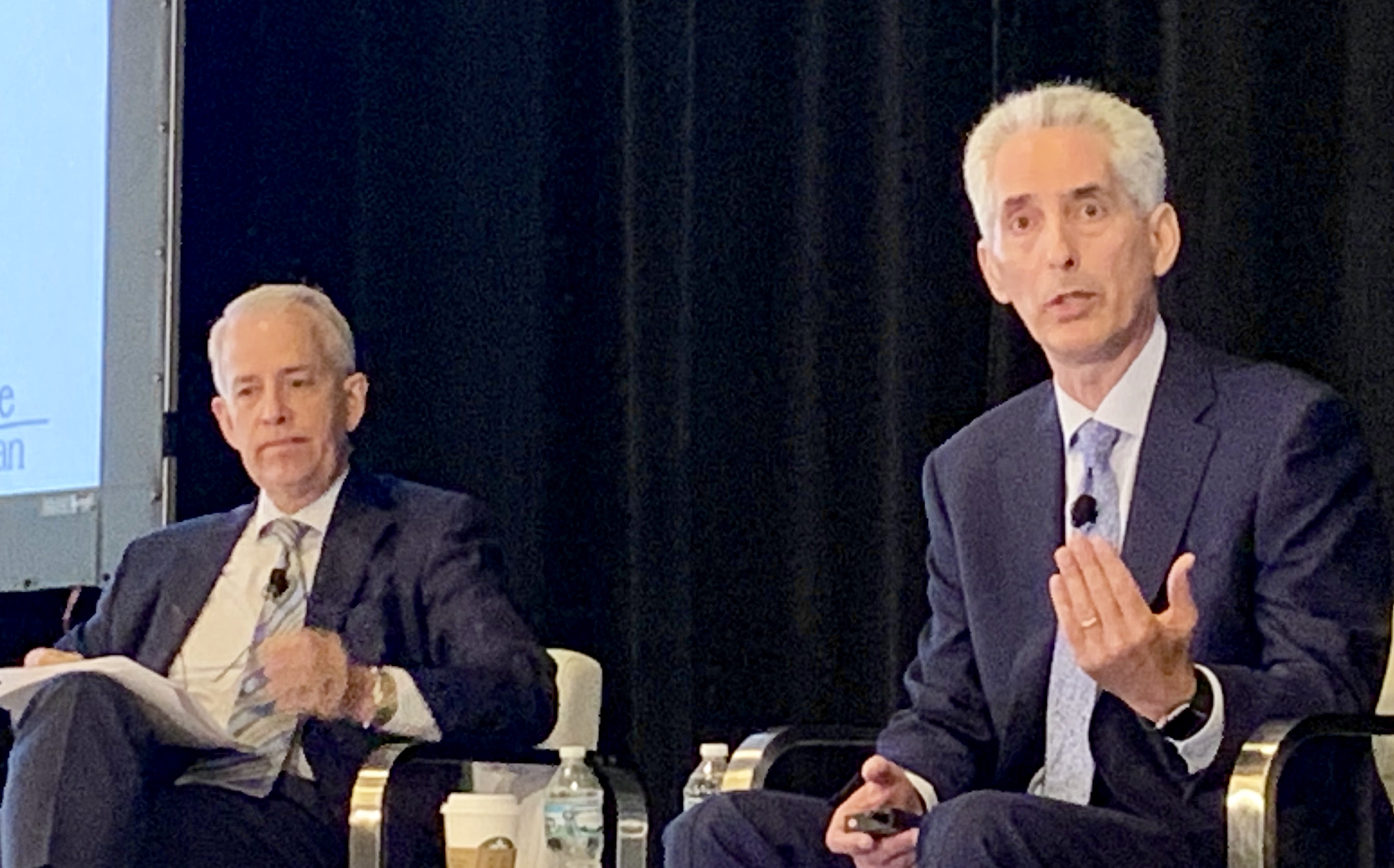RECAP: 2019 FOX Family Office Forum
Tax & Estate Update
 | Presenters: Session Description: It has been over a year since the Tax Cuts and Jobs Act of 2017 brought a multitude of changes to the tax code. As families continue to learn about the impact of the new law on their future, advisors await further guidance from the treasury department while simultaneously evaluating the challenges and opportunities presented by the changes for their clients. Always a popular session, Tom Abendroth of Schiff Hardin and Mark Blumenthal of Plante Moran led a thorough discussion of the most important tax and estate planning updates for ultra-high net worth families. |
“The biggest impact [of the Tax Cuts and Jobs Act of 2017] is the loss of the 2% miscellaneous itemized deductions. The QBID [Qualified Business Income Deduction] is a big deal and something to pay attention to.”
- Mark Blumenthal
- Mark Blumenthal
“Raised important questions to bring back to our CFO and Controller as well as our outside CPA advisor.”
- Attendee Quote
- Attendee Quote
Key Takeaways:
- For individual taxpayers, the Tax Cuts and Jobs Act of 2017 saw the elimination of personal exemptions, an increase in the standard deduction and a modification of many itemized deductions including: new limitations on state and local tax deductions and home mortgage interest deductions; elimination of miscellaneous itemized deductions, elimination of itemized deduction phase-out, and an increase in charitable contribution limitation. For trusts, there is a $10,000 limitation on State and Local Taxes, the 2% itemized deductions were eliminated, trustee fees remain deductible, and tax determination and preparation fees remain deductible.
- Qualified Business Income Deduction (QBID) is a deduction for individuals and trusts of up to 20% of qualified business income and applies to domestic business income, qualified REIT dividends, and qualified publicly traded partnership income. It does not apply to wages or guaranteed payments paid by the business to the owner.
- State statutes rely on various grounds to tax trusts: the residence of the settlor, the residence of the trustee and/or administration in the state, and the residence of the beneficiary. The trend of state case law has been to limit state authority to tax trusts. In the Kaestner 1992 Family Trust case, under the due process clause, the residence of the beneficiary was not a sufficient link for the state to tax the trust; in the Fielding case, found that trust created by a Minnesota resident and governed by Minnesota law were too attenuated to support Minnesota’s right to tax the trust’s income.
- Higher estate tax exclusion, coupled with time and appreciation, makes transfer tax planning much easier. For many couples, the focus increasingly is on structuring of lifetime transfers and trusts to maximize income tax benefits. Basis step-up includes: gifts of high basis assets, ability to swap assets with a grantor trust, portability and double step-up, upstream transfers, and estate inclusion of existing irrevocable trusts, and option to trigger in the future.
- H.R. 1994 SECURE Act is a bill to encourage greater retirement saving and expand certain retirement opportunities and would be paid for by limiting the payout of most inherited IRAs to a maximum of ten years; lifetime minimum distribution rules and spousal rollover would not change. If passed, account holders may want to consider conversion to Roth IRA’s. Additionally, payment of an IRA to a Charitable Remainder Trust would provide opportunity for longer term deferral of income tax.
VIEW THE SLIDES >
(FOX Members only)